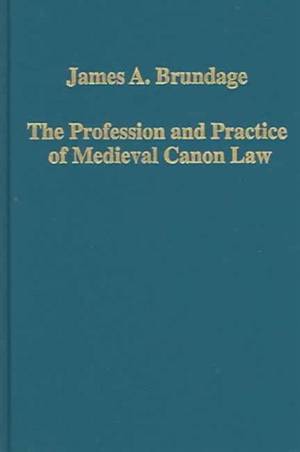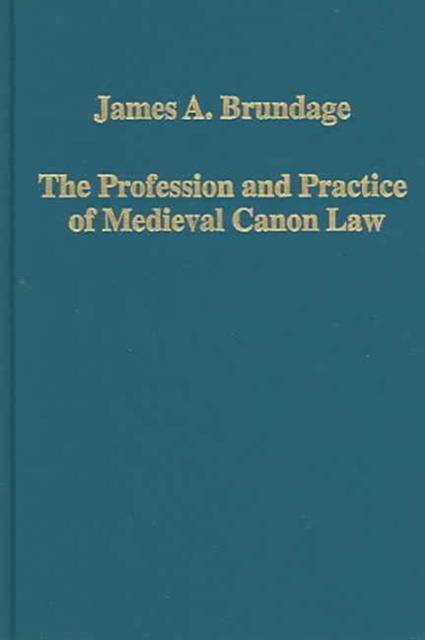
Door een staking bij bpost kan je online bestelling op dit moment iets langer onderweg zijn dan voorzien. Dringend iets nodig? Onze winkels ontvangen jou met open armen!
- Afhalen na 1 uur in een winkel met voorraad
- Gratis thuislevering in België vanaf € 30
- Ruim aanbod met 7 miljoen producten
Door een staking bij bpost kan je online bestelling op dit moment iets langer onderweg zijn dan voorzien. Dringend iets nodig? Onze winkels ontvangen jou met open armen!
- Afhalen na 1 uur in een winkel met voorraad
- Gratis thuislevering in België vanaf € 30
- Ruim aanbod met 7 miljoen producten
Zoeken
Omschrijving
This latest collection of studies by James Brundage deals with the emergence of the profession of canon law and with aspects of its practice in the period from the 12th to the 14th centuries. Substantial numbers of lawyers systematically trained in canon law first appeared in Western Europe during the second half of the 12th, century and in the 13th they began to dominate the hierarchy of the Western church. By 1250 canon law had grown into something more than a profitable occupation: it had become a recognizable profession in the strict meaning of the term as it is still used today. University law faculties trained aspiring canonists in the mysteries of their craft and put them through intellectually demanding exercises that terminated in a formal examination before they received their degrees. Judges in church courts formally admitted them to practice after verifying their educational qualifications and administered prescribed rules of conduct. Particular topics are the canonists' system of legal ethics, the education and training of canon lawyers in university law faculties, and some fundamental features of the professional practice of canon law, both in medieval Europe and in the crusading states of the Levant.
Specificaties
Betrokkenen
- Auteur(s):
- Uitgeverij:
Inhoud
- Aantal bladzijden:
- 350
- Taal:
- Engels
- Reeks:
Eigenschappen
- Productcode (EAN):
- 9780860789277
- Verschijningsdatum:
- 4/08/2004
- Uitvoering:
- Hardcover
- Formaat:
- Genaaid
- Afmetingen:
- 149 mm x 224 mm
- Gewicht:
- 630 g

Alleen bij Standaard Boekhandel
+ 412 punten op je klantenkaart van Standaard Boekhandel
Beoordelingen
We publiceren alleen reviews die voldoen aan de voorwaarden voor reviews. Bekijk onze voorwaarden voor reviews.











